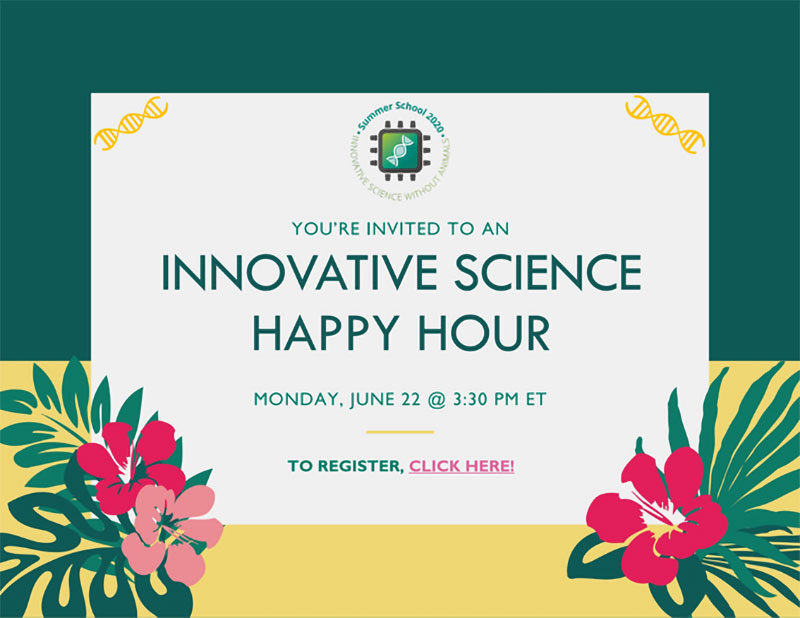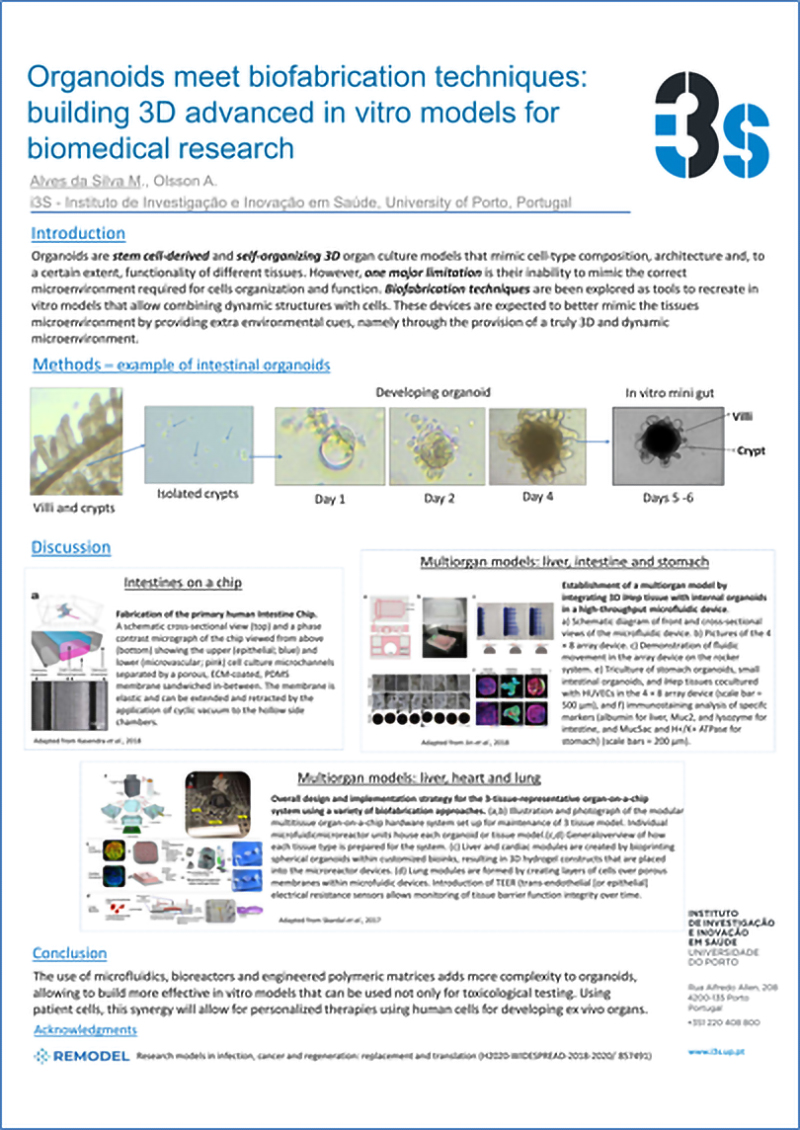Marta Alves da Silva, researcher, REMODEL project manager:
Attending a virtual Summer School was something that I never thought to be possible! The single idea of not interacting with other people, one of the basics of attending a conference, did not seem to me as feasible! How would I learn from the mentors without talking to them during the coffee breaks? What about the laboratory rotations between all mentors? How could we have Poster sessions? And…what about the Welcome Cocktails and the Conference Dinner?
As strange it may seem, it is possible! I have attended the John Hopkin’s Summer School on Innovative Approaches in Science 2020, VIRTUALLY, and I can tell you that the Summer School program was followed as if all people were present. Including, a Happy Hour Cocktail! Organizers did a wonderful job, they even send us some cocktail recipes for us to prepare and enjoy, while interacting by Zoom Conference!

Summer School Happy Hour Invitation
The Summer School program was very well organized, with parallel sessions that you could register to attend. During the morning, participants attended the lectures, and in the afternoon, poster sessions and virtual lab tours were organized. In the first day, lectures focused on critical thinking for innovative science, including a reflection on “Science in the 21st Century: is there a place for animal experimentation?”. In vitro research expert Francesca Pistollato and veterinarian and 3Rs expert Kathrin Herrmann discussed current scientific views and perspectives on the necessity of animal experimentation and animal-free methods. The talk was also focused on how animal use in science is communicated by research institutions, industry and mainstream media. After the lectures, participants joined in a round-table and debated these themes with the speakers. And then, it was Happy Hour Cocktail time!
In the next days, lectures were divided in two main tracks: Biomedical or Toxicology, and you had to choose one of them. I chose to attend the Biomedical track, as the lectures were more into my main research areas. In the second day, key lectures explored “in vitro and in silico approaches” in biomedical research, exploring modelling of human diseases, 3D models, complex Tissue Engineering and microfluidics, as well as the challenges behind the use of these novel technologies in microphysiological models. The next day was dedicated to “Integrated Approaches”, and it was my favourite. Disease models “on-a-dish” were explored as alternatives to animal experimentation. Moreover, Alzheimer´s disease models were discussed and insights on how we need to prioritise non-animal models in this area were given. I must highlight the talk by Dr. Helena Hogberg, from Johns Hopkins University, on “3D Organotypic Tissue Cultures as Predictive Human Disease Models”. I have learned how to generate a 3D neuronal model, and it was so interesting that I registered for the virtual lab tour in her lab in the next day. The last day of lectures was themed “Clinical Relevance”, and the application of non-animal models in clinical research, as well as its relevance and opportunities were discussed. The importance of using human-specific models for human diseases research was explored by Dr. Jarrod Bailey, from the Center for Contemporary Sciences. He highlighted the widespread failures of animal models in mimicking several human diseases, and defended his point of view that animal models are not an option in biomedical research.
The Toxicology track was also available for downloading, meaning that you could attend both of the tracks. That was one of the good things of this virtual Summer school: you didn´t have to be running around the meeting rooms because you wanted to assist to one particular talk. You just needed to download the lectures and watch them when you had the chance! Another thing that I enjoyed was being seated comfortably in my office while listening to the lectures (we all know that conference chairs sometimes are not that comfy!).
But for me, the most striking part was the Poster Sessions! Yes, it was really interesting! Poster sessions can be very boring. I believe most of you have experienced being beside your poster for 1 hour or more, waiting on someone to ask you questions (or not…). Most of the times, poster sessions run during coffee breaks, which makes the poster presenter´s work even more difficult….you just need that one cup of coffee that you cannot have! I must confess, poster sessions are not my cup of tea!
But this poster session was indeed different! People attending with a poster had two minutes to present it, and everyone could ask questions, by using the zoom chat. Posters have been previously downloaded by all attendees, so we were able to analyse them prior the session. Surprisingly, people were very engaged on the session, so I have learned a lot, changed some ideas and got new connections with other researchers.

Poster presented at John Hopkin’s Summer School
This experience showed me that we do not need to travel around the world to attend a conference and enjoy every single moment of it. You can do it online. Of course, this does not apply to workshops or conferences with hands-on sessions, where your presence is essential. But I believe that we can re-think our need to travel and attend all conferences, by the sake of our health and our planet.

 This project received funding from the European Union’s Horizon 2020 Research and Innovation programme under grant agreement No 857491.
This project received funding from the European Union’s Horizon 2020 Research and Innovation programme under grant agreement No 857491.